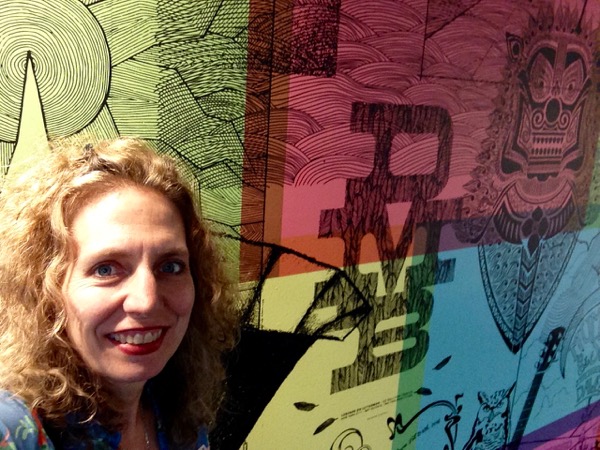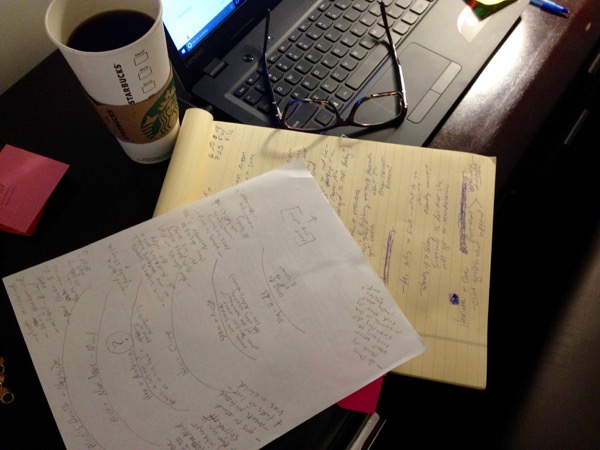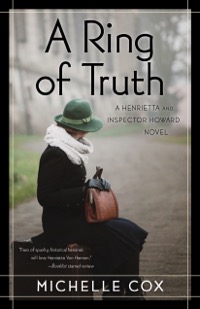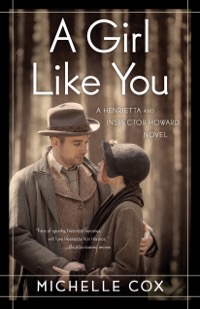The biggest physical challenge in writing is probably having to sit so long in one place.
When I first starting writing novels, I would only write for an hour a day and then go about my business, but now I sit for about seven and a half! I start writing as soon as my kids get on the bus at 6:50 am, and I work on various projects until they get home at 2:20 pm.
I usually put in about another hour later in the evening as well. I’m very used to being active, so this has been hard for me.
Move Your Workout to Accommodate Your Writing Time
I still work out each day (I do a cardio workout on an elliptical in my basement three days a week and lift weights the other three), but in order to maximize my time best, I’ve had to shift my workouts to a later time in the afternoon or evening to accommodate my writing better.
I’ve found that I really need the time that I’m alone in the house to fully focus on writing. Working out is something that can be done when the kids are home, so I’ve changed my routine. It’s definitely harder, as I’m more tired at that point and it’s easier to find an excuse not to do it, like the kids need help with homework or someone has a band concert or someone has an eye appointment, et cetera x’s 1000!
I still make myself do it, but it takes a little extra oomph.

Twenty-Minute Walks Are Fantastic for Writing Inspiration
Something that has helped me to feel better has been incorporating a twenty-minute nightly walk into my regime.
I started this challenge about two years ago. At first I thought it would be a good addition to my workouts, which it was, but it was also supposed to challenge my time usage. I wanted to see if I really could commit to walking every single night, without fail, no matter what the weather was.
And that first year, I did it! I managed to walk 365 days. The second year, I had some missed days, but I tried to make up for those on successive days. (Not really the same, I know, but it made me feel less guilty.)
What I discovered, though, much to my delight, was that these twenty-minute walks were fantastic for inspiration!
As I walked, I tried to force my brain to think about the book I was writing instead of a “to-do” list, or a run-down of the kids’ appointments, or anything else swirling around in my head. I tried to just focus on the chapter I wanted to write the next day, and often I would come up with wonderful revelations or new ideas!
They say that Charles Dickens used to spend hours walking the streets of London through the night; I think I know why now.
A Full-Time Mom Can be Overwhelmed by Writing Responsibilities
The biggest challenge to being a writer is definitely balance.
I’m pretty type-A, so when I decide on a path, I throw myself into it completely. Before I started writing, I was a stay-at-home mom and used every minute of every day to garden, cook, clean, do laundry, sort out closets, volunteer, organize areas of the house, make appointments, drive kids to activities, repair something, bake cookies for the class, make chore-charts, etc.
Then I started writing. But it was only for a couple of hours a day, so I could still make time for everything with only minor adjustments. As time went on, however, and the first book was published and then promotion began in earnest, followed by another novel, and then another . . . my day quickly began to get eaten up with just writing responsibilities.
Now I write full time, but I haven’t quite given up my full-time mom job, either! So that makes for a very tired, stressed person. I think that when women make the decision to go or return to work, it’s obviously a conscious thing and with that comes the understanding that certain things are going to have to be put by the wayside, like making sure all the photos of the family vacation are organized or even sometimes something as essential as making dinner.
The point is that when you decide to start a “real” job, you presumably have some sort of conversation with at least yourself in which you hopefully decide up front what’s going to shift in priority. That never happened for me.
The new writing “career” just sort of evolved, so that I was sort of taken off-guard when I eventually found myself knee-deep in edits, ARC revisions, newsletters, Twitter, blogs, Facebook posts, articles, interviews, touring, and reviews, all the while always working on a new book.
I’m still trying to find the right balance. My husband has been really great in helping, but his career is in full-swing right now, too, so he’s limited in how much he can realistically do. I know I need to let go of more or get the kids to help more (easier said than done), but it’s difficult.
I feel like I’m leading two complete lives, but I only have one body and only so many hours to sleep. There are many writers I know, though, who have full-time jobs, a family to care for, and still make time to write, so that’s three separate lives. I give them a lot of credit; I can barely do two!

My Stress Relief Comes from Prayer and Reading
Well, I know I should say that exercise is the way I cope, but I don’t feel a ton of relief from that. Perhaps I’m just too used to the endorphins, but working out seems more like a burden than anything else. My two greatest reliefs come from my morning prayer time and my nightly reading time. These are times that are set aside just for me.
I get up very early in the morning before anyone else is up, make coffee and then sit and read scripture and pray/meditate. I find real strength in my faith, to know that it’s not all up to me, that there is a higher power.
Likewise, the end of the day is for myself, too. I try to make time to sit with a glass of wine and a good book in my favorite location: a cozy chair in the little make-shift office I’ve made for myself off of our bedroom. Heavenly!
The Darkest Moment: Not Being Able to Find a Publisher for My First Novel
I haven’t really been writing that long, but I guess the darkest moment (if you can call it that) of the journey so far has been the fact that I couldn’t get my first novel published.
I worked on this gargantuan tome for a year, then spent about six months editing, and then spent another six months querying over 200 agents, none of whom were even remotely interested. I knew so little about writing and, more importantly, about publishing at that point that I didn’t realize there was such a thing as an acceptable word count!
While most contemporary novels are between 80-100,000 words, my first effort clocked in at a whopping 240,000 words! No wonder it never saw the light of day! It was incredibly hard to put it aside, especially when everyone in my little beta reading group really loved it, but I see now that it was for the best.
From there I began the Henrietta and Inspector Howard series. It was more of a personal challenge, really, to see if I could write something more marketable, and to my surprise, it got picked up!
At first it was really hard to let go of all of the characters from my first book, but at some point my heart converted, and I fell in love with Clive and Henrietta, too. It’s been immensely fun to write them and to watch their story unfold.
Writing for Social Media is Addictive
I think what’s kept me going is multi-faceted, really. There’s something exciting about putting stuff out on social media or your website, like a blog post or a newsletter, and getting instant feedback. So different than the long, long trudge of motherhood that has little acknowledgement beyond a sloppy kiss at the end of the day or a tight hug now and again and which requires about a twenty-year wait while the verdict is out to see if you produced a successful human being!
Writing for social media, on the other hand, is instant. It’s like a drug in some ways, and it’s very addictive. And then when A Girl Like You came out, the feedback was all the more intense and fulfilling. I loved getting reviews—from the industry giants to friends and family to strangers. Having people write to me to say how much they enjoyed the book and were looking forward to the next has been very motivational and inspiring.
And wanting to see what happens to the characters drives me forward, too. I can’t imagine walking away from that world right now. The characters are so real for me, and there’s a part of my brain that lives there with them now. Their story isn’t finished, and so I’m driven to keep writing it.

What Keeps Me Going: Creativity Is Its Own Reward
Besides all of that, however, there is a deeper motivation running. One of the reasons I started writing in the first place was to counter a deep sense of negativity I was beginning to feel all around me. I realized one day that I was surrounded by what seemed to be an inordinately large group of negative, depressed people and that I was spending an awfully lot of brain power worrying about their problems and how to help them.
And not only was I wasting brain power thinking up advice that no one ever listened to anyway, but I was becoming negative myself, despite my best efforts over the years to fight it. I started to realize that I needed to do something to help myself.
As I pondered this, the idea that began to come to me was to take all of the brain energy I was endlessly spinning to try to solve people’s unsolvable problems and instead use it for the good, to create something perhaps, like, let’s say a book. And then it all seemed to fall into place and make sense.
Shortly after this, I happened to read something by Ron Rolheiser in which he said that “We are meant to create things, not because we might get them published and receive honor and money for them. We are meant to create things because creativity, of all kinds, has us enter into the deep center of energy at the heart of things. Creativity is its own reward. When you act like God, you get to feel like God—or, at least, you get to feel some wonderful divine energy.”
And then I knew it was time to start writing.
Advice for a Young Writer: You Have to Want it for a Deeper Reason
The hardest part about being a writer is discipline.
It takes a lot of discipline to first of all complete something you started. But that’s almost the easy part. From there, it takes incredible stamina to edit something ten, fifteen, twenty times before it’s perfect enough to be published.
Who wants to read their novel for the twelfth time, looking for errors? It’s god-awful boring. But it has to be done. I actually hesitate to say that to young people, however, as I don’t want to scare them away. I mean, if people really knew what it was like to be a writer, no one would be one!
You have to want it for some deeper reason. A college professor of mine once said that no one should attempt to write a novel before they are forty! I was shocked at the time, but now I get it. Not only do you need the life experience and the maturity, but you need to have honed your discipline!
My advice to young people who want to write is to read, read, read! Read the classics especially; there’s much to learn from them! It’s important to write every single day, whether you feel like it or not.
It’s a lot like exercise. You can’t just wait for the “feeling” to come upon you; some days you have to make yourself do it. It’s work, like anything else. But it’s worth it, at least it has been for me.
* * *
 Michelle Cox holds a B.A. in English literature from Mundelein College, Chicago, and is the author of the award-winning, A Girl Like You, the first in the Henrietta and Inspector Howard series. She is known for her wildly popular blog, “How to Get Your Book Published in 7,000 Easy Steps—A Practical Guide” as well as her charming “Novel Notes of Local Lore,” a blog dedicated to Chicago’s forgotten residents. Michelle lives with her husband and three children in the Chicago suburbs. Her new novel, A Ring of Truth, will be released April 2017.
Michelle Cox holds a B.A. in English literature from Mundelein College, Chicago, and is the author of the award-winning, A Girl Like You, the first in the Henrietta and Inspector Howard series. She is known for her wildly popular blog, “How to Get Your Book Published in 7,000 Easy Steps—A Practical Guide” as well as her charming “Novel Notes of Local Lore,” a blog dedicated to Chicago’s forgotten residents. Michelle lives with her husband and three children in the Chicago suburbs. Her new novel, A Ring of Truth, will be released April 2017.
For more information on Michelle and her work, please see her website, or connect with her on Twitter and Facebook.
 A Ring of Truth: Newly engaged, Clive and Henrietta now begin the difficult task of meeting each other’s family. “Difficult” because Clive has neglected to tell Henrietta that he is in fact the heir to the Howard estate and fortune, and Henrietta has just discovered that her mother has been hiding secrets about her past as well.
A Ring of Truth: Newly engaged, Clive and Henrietta now begin the difficult task of meeting each other’s family. “Difficult” because Clive has neglected to tell Henrietta that he is in fact the heir to the Howard estate and fortune, and Henrietta has just discovered that her mother has been hiding secrets about her past as well.
When Clive brings Henrietta to the family estate to meet his parents, they are less than enthused about his impoverished intended. Left alone in this extravagant new world when Clive returns to the city, Henrietta finds herself more at home with the servants than his family, much to the disapproval of Mrs. Howard―and soon gets caught up in the disappearance of an elderly servant’s ring, not realizing that in doing so she has become part of a bigger, darker plot.
As Clive and Henrietta attempt to discover the truth in the two very different worlds unraveling around them, they both begin to wonder: Are they meant for each other after all?
Available at Amazon and IndieBound.
 A Girl Like You: Henrietta Von Harmon works as a 26 girl at a corner bar on Chicago’s northwest side. It’s 1935, but things still aren’t looking up since the big crash and her father’s subsequent suicide, leaving Henrietta to care for her antagonistic mother and younger siblings. Henrietta is eventually persuaded to take a job as a taxi dancer at a local dance hall―and just when she’s beginning to enjoy herself, the floor matron turns up dead.
A Girl Like You: Henrietta Von Harmon works as a 26 girl at a corner bar on Chicago’s northwest side. It’s 1935, but things still aren’t looking up since the big crash and her father’s subsequent suicide, leaving Henrietta to care for her antagonistic mother and younger siblings. Henrietta is eventually persuaded to take a job as a taxi dancer at a local dance hall―and just when she’s beginning to enjoy herself, the floor matron turns up dead.
When aloof Inspector Clive Howard appears on the scene, Henrietta agrees to go undercover for him―and is plunged into Chicago’s grittier underworld. Meanwhile, she’s still busy playing mother hen to her younger siblings, as well as to pesky neighborhood boy Stanley, who believes himself in love with her and keeps popping up in the most unlikely places, determined to keep Henrietta safe―even from the Inspector, if need be.
Despite his efforts, however, and his penchant for messing up the Inspector’s investigation, the lovely Henrietta and the impenetrable Inspector find themselves drawn to each other in most unsuitable ways.
Available at Amazon and IndieBound.

